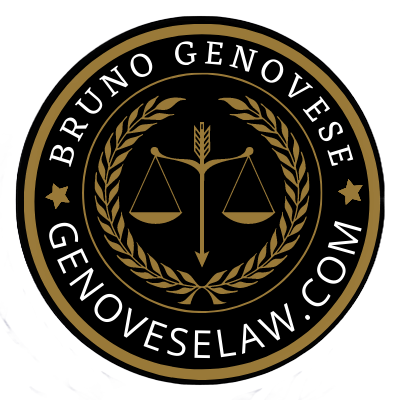Introduction
In recent years, data privacy in the EU has become one of the most talked-about, evolving, and essential topics within digital policy. With the world’s rapid adoption of artificial intelligence, the Internet of Things (IoT), and advanced data analytics, European regulators have been working to keep up with technological advancements and protect individuals’ rights. By 2025, data privacy in the EU is expected to reach new heights with strengthened frameworks, emerging best practices, and a forward-looking strategy. Let’s dive into predictions for the future of data privacy in the EU and what businesses can expect.
1. Stricter AI and Machine Learning Regulations
As AI-driven tools become integral to daily life, particularly in areas like healthcare, finance, and security, the EU is already laying groundwork to regulate AI with its proposed Artificial Intelligence Act. By 2025, expect this regulation to be in full force, holding AI-powered applications to stringent data protection and ethical standards.
Predicted Impact:
- AI applications will require rigorous Data Protection Impact Assessments (DPIAs).
- AI developers may face new responsibilities to explain and document algorithmic decisions, particularly in high-stakes areas.
- Transparency and accountability for AI models that use personal data will be mandated, encouraging a high standard for ethical data practices.
Business Takeaway: Companies leveraging AI will need to implement robust compliance mechanisms early, ensuring that AI applications align with the EU’s vision of safe, fair, and transparent technology.
2. Enhanced Cross-Border Data Transfer Frameworks
Data transfers between the EU and non-EU countries have been a complex issue following the invalidation of Privacy Shield by the Court of Justice of the European Union in 2020. By 2025, a solidified and resilient framework is likely to be in place. Privacy Shield 2.0 (the EU-US Data Privacy Framework) is already a step in this direction, expected to provide increased protections for EU citizens’ data while simplifying compliance for businesses.
Predicted Impact:
- New data transfer agreements will likely set high standards for U.S. companies processing EU data.
- Greater transparency and enhanced accountability measures for non-EU entities handling EU citizens’ data.
- Possible introduction of a self-certification program for non-EU companies to demonstrate compliance with EU data standards.
Business Takeaway: Organizations that prioritize strong data transfer compliance will have a competitive advantage in the EU market. Preparing for enhanced data-sharing agreements will also minimize potential disruptions in cross-border data flows.
3. A Stronger Focus on Privacy by Design and Privacy by Default
As privacy laws continue to evolve, the concept of Privacy by Design and Privacy by Default will solidify as core requirements across all EU regulations. By 2025, these principles will be embedded into the lifecycle of products and services, ensuring data privacy is not an afterthought but an inherent feature.
Predicted Impact:
- Proactive compliance: Companies will need to demonstrate proactive privacy measures at every stage of development.
- Product assessments: Companies developing new technologies will be required to conduct thorough privacy assessments, adapting designs to minimize data collection and enhance security.
- Consumer empowerment: Consumers will benefit from default privacy settings, offering a higher level of protection with minimal effort required on their part.
Business Takeaway: Companies that make privacy integral to their product design will be better positioned to comply with EU standards, enhancing consumer trust and brand loyalty in the process.
4. Increased Enforcement and Heavier Fines
The GDPR has already empowered EU regulators to impose substantial fines on companies that fail to comply with data protection laws. However, by 2025, it’s likely that fines will increase as regulators grow more adept at identifying and addressing privacy violations, particularly with the aid of new technology.
Predicted Impact:
- Increased audits and inspections: Regulators will likely increase random audits of companies processing significant amounts of personal data.
- Technology-based monitoring: AI and big data could enable regulatory bodies to monitor compliance in real time, identifying potential violations as they happen.
- Heightened penalties for data breaches: Organizations could face not only higher fines but also additional legal requirements post-breach, such as mandatory third-party audits and continuous monitoring.
Business Takeaway: Organizations should prioritize compliance by conducting regular internal audits and strengthening security measures. Companies with a strong compliance record will minimize risk and maintain operational stability, even as enforcement ramps up.
5. Rise of Data Sovereignty and Localized Data Storage
With data localization laws becoming increasingly common worldwide, the EU is also moving towards a model of data sovereignty. By 2025, certain types of sensitive data may be required to stay within the EU, impacting cloud storage strategies and global data processing operations.
Predicted Impact:
- Localized data centers: Companies serving EU markets may need to invest in or partner with data centers within the EU to comply with data localization requirements.
- Reduced reliance on non-EU cloud providers: Organizations may be encouraged to use EU-based cloud services that meet local data protection standards.
- More control over personal data: Data sovereignty efforts may empower EU citizens with even greater control over their personal data, aligning with the EU’s mission to protect its residents’ privacy.
Business Takeaway: For companies working with sensitive EU data, localized data storage solutions will likely become a necessity. Investing early in compliant data infrastructure will smoothen transitions as these requirements become mandatory.
6. New Regulations for Emerging Technologies
By 2025, the EU will likely introduce new regulatory measures for blockchain, IoT, and quantum computing, addressing privacy concerns associated with these rapidly evolving technologies. These technologies present unique challenges, particularly when it comes to data collection and encryption standards.
Predicted Impact:
- Clearer standards for IoT devices: The EU is expected to regulate IoT devices, particularly those collecting personal data within homes, cities, and workplaces.
- Regulatory frameworks for blockchain: Privacy-focused standards could help address issues around data permanence and transparency, especially in the financial sector.
- Guidelines for quantum-resistant encryption: As quantum computing advances, new encryption protocols will likely be mandated to secure data from future threats.
Business Takeaway: Companies should stay informed of EU regulations affecting their technology and be ready to adapt product features or enhance security to meet these upcoming requirements.
Conclusion
By 2025, the EU’s data privacy landscape will be more robust, adaptive, and finely tuned to the technological advances shaping our world. With higher standards for AI, clearer cross-border data frameworks, and an unwavering commitment to protecting individual rights, the EU continues to lead globally in data privacy.
For businesses, this means a call to action to not only comply but to embrace these changes. Organizations that prioritize data privacy as part of their core strategy will be well-positioned for success in the EU market. Preparing for the future of data privacy will not only ensure regulatory compliance but will also build trust and loyalty with consumers who increasingly value their digital privacy.
With a proactive and informed approach, 2025 can be a year of growth and opportunity, even as the data privacy landscape becomes more complex and demanding.



